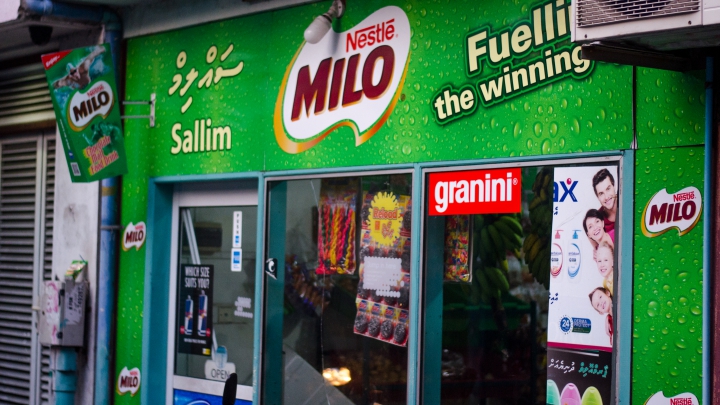A government ban on employing foreign cashiers in restaurants, cafés and shops is “killing” small businesses, owners have said.
More than 60 businesses across the country have been fined by MVR10,000 (US$648) over the past year for employing foreigners, local media report. The state is expecting more than a million rufiyaa in fines.
The policy, which came into effect in April last year, was sold as an attempt to open up job opportunities for young Maldivians, of whom more than half are unemployed.
But small businesses owners I spoke to said they are unable to hire Maldivians as the job is seen as socially unacceptable and is poorly paid. Experts meanwhile have welcomed the policy, but say it is being implemented poorly. The government must train cashiers and provide support for small businesses instead of imposing hefty fines, they said.
Ahmed Mamdhooh, the manager of a small general store in Malé, said: “Shops like ours can only give so much as wages. Locals want at least MVR 8,000 (US$518) per month. But that’s too expensive for us,” he said.
Migrant workers are usually employed for a fraction of the amount, often just a few hundred dollars. When Maldivians do sign up, they are unreliable, Mamdhooh added. “When we hire locals we have to either fire them because they don’t show up or they resign on their own.”
A restaurant owner in Malé agreed: “People who work at cash counters are seen as people of lower social status.”
“The policy is going to kill small businesses. It’s too much. It’s a very bad policy.”
The fine of MVR10,000 is usually what most small businesses obtain as profit, many owners said. A grocery shop owner in Malé said the policy and the harsh fines could mean the end of small and medium enterprises, and will aid the rise of big businesses.
Before enforcing the policy, the government had announced plans to train 2000 Maldivians as cashiers, but only 129 have been trained so far, according to the economic development ministry.
“We are working on training more Maldivians for cashier jobs. As for salary, it’s my opinion that it should start low and be increased gradually according to the employee’s performance,” Ahmed Thaufeeq, the deputy minister for economic development, said.
The policy would protect Maldivian businesses, he contended, arguing foreigners have taken over certain sectors. “In some cases we find that the businesses are totally controlled by foreigners. This should not happen and the policy will help protect Maldivians. In the long term the benefit of the policy will be more visible,” he said.
The Maldives National Chamber of Commerce and Industries, an association of entrepreneurs, agreed with Thaufeeq.
“A large sum of money already goes out of our economy as the migrant worker population is so high,” said Ahmed Asif, the MNCCI’s vice president. “This policy will allow us to keep some of that money rolling in our economy. Moreover this will be very helpful in providing job for Maldivian youths.”
Foreigners have also been banned from selling mobile phones and accessories, and from providing photography-related services as well as operating souvenir shops and customs bonded warehouses.
But the government must make plans to make it easier for small businesses, he said.
“Businesses should not have to struggle to find locals for cashier jobs. Obviously if you don’t get locals you have to put somebody else in the place. The government must step in to help with such challenges,” he said.
Mahmood Raazee, a former economic minister, said the opposition Maldivian Democratic Party had also discussed implementing a similar policy between 2008 and 2012.
“Actually the policy is good. The problem is, in my opinion, is that the government is implementing only bit by bit. It is unfair to fine a business when the country does not provide manpower needed for the business to run,” he said.
Unlike migrant workers, Maldivians will need incentives and other benefits in addition to the monthly wages, he said.
“Our youth have to be trained and small businesses should be subsidized on some level. The policy should be implemented as a whole instead of just imposing fines. Otherwise this would be a defeated policy,” he added.
A 19-year-old working as a cashier at a general store in Malé said he was only working there because it was a family business.
“I would not want to be at this job if I have a better option,” the teenager who did not want his name published said. “I’m studying mechanical engineering at polytechnic. So obviously this is not my field.”
He added: “I don’t particularly like this job. But I don’t hate it either.”



















